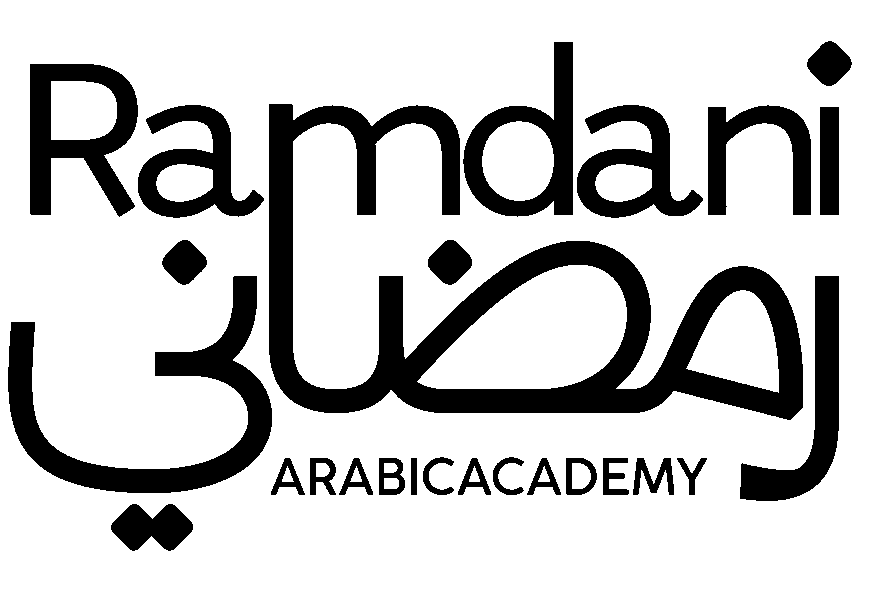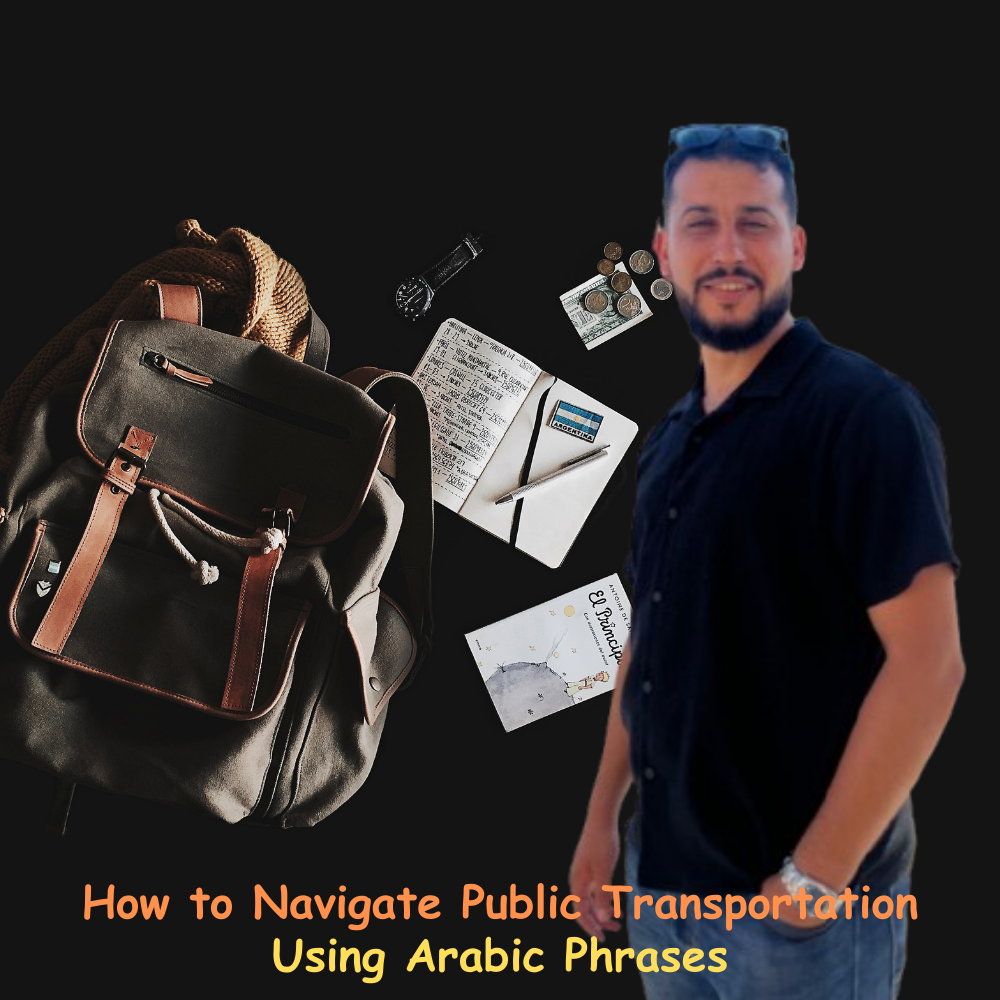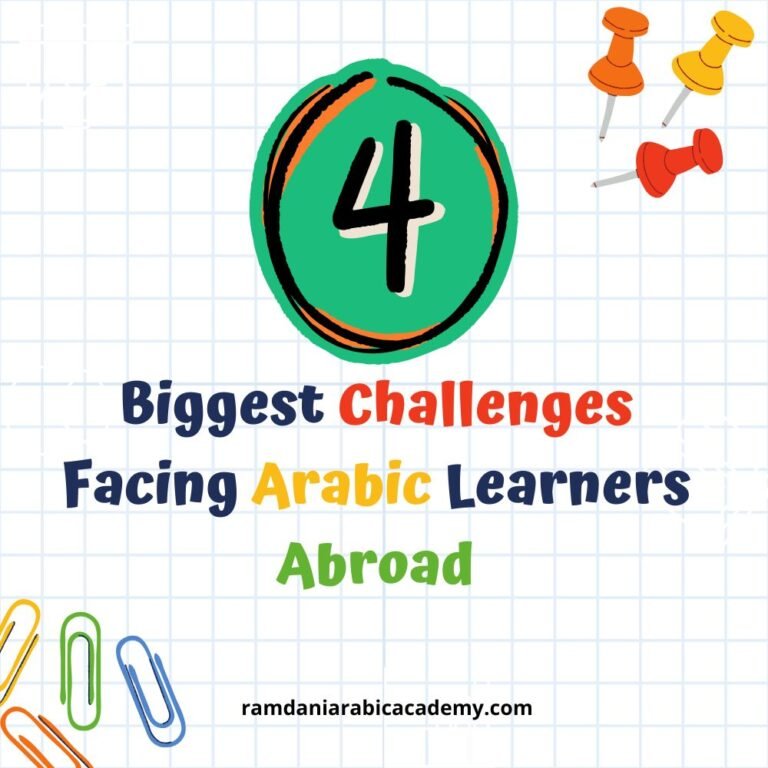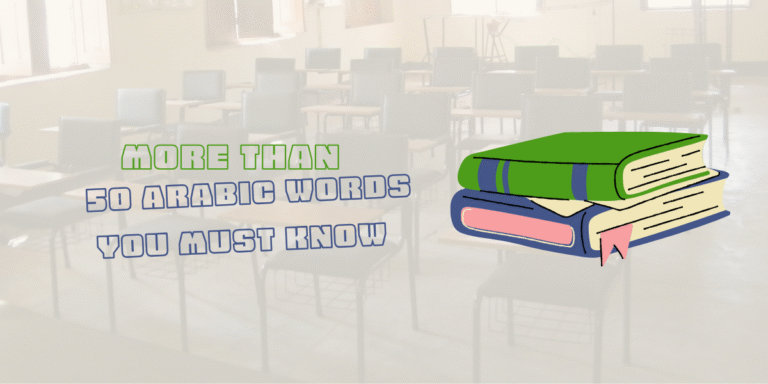How to Navigate Public Transportation Using Arabic Phrases … The best of 2026
My name is Mohamed, a 30-year-old Moroccan with a deep love for teaching Arabic to those who don’t speak it natively. With a bachelor’s degree in Islamic Studies and over seven years of teaching under my belt, I’ve learned that language isn’t just about grammar or vocabulary—it’s about opening doors to new experiences. I founded Ramdani Arabic Academy to do just that: help non-native speakers, especially those from the diaspora, connect with their roots through practical, real-world Arabic. Armed with several diplomas in teaching methods, I focus on reading and writing skills, tailoring lessons to make Arabic not just learnable but usable. Whether it’s decoding a street sign or penning a quick note, my goal is to make students feel at home in the Arab world.
Traveling in Arabic-speaking countries can be a wild ride, especially when you’re trying to figure out buses, trains, or taxis in cities like Beirut or Casablanca. Without the right words, you might end up on the wrong side of town—or paying double for a cab! I’ve seen this firsthand with my students at Ramdani Arabic Academy. One of them, a British-Lebanese student, told me how learning to say “How much is the ticket?” transformed her solo trip in Jordan from stressful to empowering. That’s the magic of knowing key Arabic phrases—they don’t just get you to your destination; they spark connections with locals who appreciate your effort.
Public transportation in the Arab world is as diverse as its people. You’ve got sleek metros in Dubai, chaotic microbuses in Cairo, and everything in between. Each system has its own rhythm: some require apps, others cash and a bit of haggling. At Ramdani Arabic Academy, we teach phrases that work across these settings, blending Modern Standard Arabic (MSA) for clarity and dialect tips for charm. For example, MSA’s “Where’s the train station?” is universally understood, but in Morocco, you might toss in a local phrase to sound like you belong. My Islamic Studies background reminds me that language is about community—building trust and understanding, one conversation at a time.
This article is your guide to navigating public transportation with Arabic phrases that feel natural and effective. Drawing from my years of teaching, I’ll share practical tips and phrases, with transliterations to nail the pronunciation. At Ramdani Arabic Academy, we emphasize practice—whether it’s recording yourself or joining our live classes—so you’re ready to hop on a bus or hail a taxi with confidence. Let’s make your next trip not just smooth but memorable.
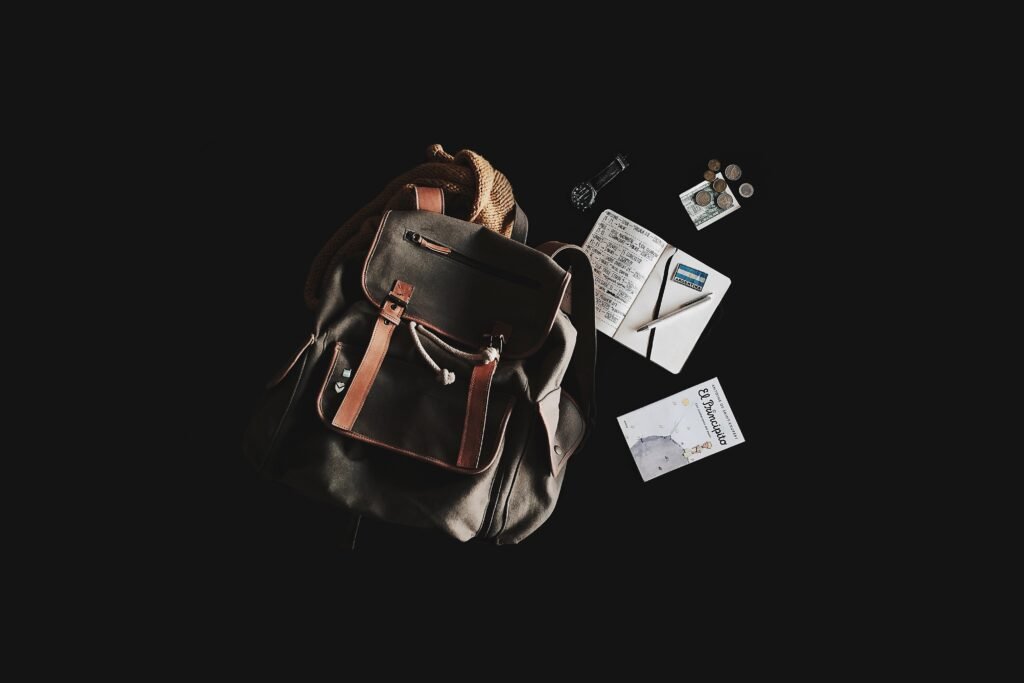
Buying Tickets with Confidence
Navigating a ticket counter in an Arabic-speaking country can feel daunting, but a few key phrases make it manageable. Start with a polite “أريد تذكرة، من فضلك” (Uridu tadhkirah, min fadlik), pronounced “Oo-ree-doo tadh-kee-rah, min fad-lik,” meaning “I’d like a ticket, please.” This Modern Standard Arabic phrase works everywhere, from Algiers to Abu Dhabi. At Ramdani Arabic Academy, I encourage students to pair this with a friendly nod—small gestures matter in Arab culture. One of my students, a young Australian of Iraqi descent, used this in Baghdad and said it sparked a warm exchange with the seller. To specify your destination, say “تذكرة إلى [destination]” (Tadhkirah ila [destination]), like “تذكرة إلى المطار” (Tadhkirah ila al-matar) for “A ticket to the airport.” In markets like Amman, you might need “كم السعر؟” (Kam as-sa‘ar?), pronounced “Kam as-saar?” for “How much is it?” Taxis often involve bargaining, so practice a calm tone. I tell my Ramdani Arabic Academy students to jot these phrases in a notebook or phone app for quick glances. Repeat them a few times, and you’ll breeze through ticket purchases with confidence.
Asking for Directions and Schedules
Finding the right bus or platform often means asking for help. A handy phrase is “متى يغادر القطار؟” (Matee yughadir al-qitar?), pronounced “Ma-tee yoo-gha-dir al-qi-tar?” meaning “When does the train leave?” This is perfect for bustling stations in cities like Tunis or Doha. If you’re unsure of your stop, try “أين الموقف؟” (Ayna al-mawqif?), said as “Ay-na al-maw-qif?” for “Where is the stop?” At Ramdani Arabic Academy, we practice these in mock scenarios, and I’ve watched students, like a French-Moroccan traveler, use “هل هذا الباص يذهب إلى المدينة؟” (Hal haadha al-bus yadhab ila al-madina?), pronounced “Hal haa-dha al-bus yadh-hab ila al-ma-dee-na?” for “Does this bus go to the city?” in Rabat with success. Locals might reply in dialect, but sticking to MSA keeps things clear. For schedules, ask “هل يوجد جدول؟” (Hal yوجd jadwal?), pronounced “Hal yoo-jad jad-wal?” meaning “Is there a schedule?” I teach my students to write down responses to stay on track. At Ramdani Arabic Academy, we stress practicing these aloud to nail pronunciation, ensuring you’re ready to navigate any station.
Handling Delays and Missed Stops
Public transportation in the Arab world can be unpredictable—delays or missed stops are common, especially in busy cities like Cairo or Beirut. Knowing how to ask about issues calmly is key. Try saying “هل هناك تأخير؟” (Hal hunak ta’khir?), pronounced “Hal hoo-nak ta-kheer?” for “Is there a delay?” This polite question in Modern Standard Arabic gets clear answers. At Ramdani Arabic Academy, I teach students to stay composed, as a respectful tone often leads to helpful responses. One student, a British-Egyptian, used “لماذا توقف الباص؟” (Limadha tawagqaf al-bus?), pronounced “Li-ma-dha ta-waq-qaf al-bus?” meaning “Why did the bus stop?” during a Cairo traffic jam and got a kind explanation from the driver. If you miss your stop, ask “كيف أعود إلى [destination]؟” (Kayfa a‘ud ila [destination]?), like “كيف أعود إلى وسط المدينة؟” (Kayfa a‘ud ila wasat al-madina?) for “How do I get back to downtown?” Pronounce it “Kay-fa a-ood ila wa-sat al-ma-dee-na?” In my classes at Ramdani Arabic Academy, we practice these phrases through role-plays, and I encourage writing them down to feel prepared. A calm approach and a few rehearsed lines can turn a stressful moment into a manageable one.
Interacting with Passengers and Drivers
Engaging with locals on buses or trains can make your journey smoother and more enjoyable. A great way to ask for help is “هل يمكنك مساعدتي؟” (Hal yumkinuk musa‘adati?), pronounced “Hal yum-ki-nuk moo-sa-a-da-tee?” meaning “Can you help me?” This opens the door to friendly assistance. At Ramdani Arabic Academy, I’ve seen students, like a Moroccan-American traveling in Marrakech, use this to ask a fellow passenger “هل هذا المقعد شاغر؟” (Hal hadha al-maq‘ad shaghir?), pronounced “Hal haa-dha al-mak-ad shaa-ghir?” for “Is this seat free?” The passenger not only confirmed but shared tips about the route. When talking to drivers, try “هل ستمر بـ [place]؟” (Hal satamurr bi- [place]?), like “هل ستمر بالسوق؟” (Hal satamurr bi-s-suq?) for “Will you pass by the market?” Pronounce it “Hal sa-ta-murr bis-sooq?” Drivers appreciate clear, polite questions, especially in hectic cities like Tunis. I always tell my students at Ramdani Arabic Academy to practice these phrases aloud, ideally recording themselves to perfect the accent. Jotting down key words or using our app’s phrasebook helps, too. These small interactions build confidence and turn strangers into allies on your journey.
Dealing with Emergencies or Lost Items
Emergencies on public transportation, like feeling unwell or losing something, can happen anywhere—from a crowded metro in Dubai to a bus in Damascus. Staying calm and knowing basic phrases helps. Start with “أحتاج مساعدة!” (Ahtaj musa‘adah!), pronounced “Ah-taj moo-sa-a-dah!” meaning “I need help!” This urgent call in Modern Standard Arabic grabs attention quickly. At Ramdani Arabic Academy, I stress practicing these under pressure through simulated scenarios, as one student, a Spanish-Algerian, did before using “لقد فقدت حقيبتي” (Laqad faqadtu haqibati), pronounced “La-qad fa-qad-too ha-qi-ba-tee” for “I’ve lost my bag,” on a train in Algiers—the conductor helped search right away. If you’re ill, say “أنا مريض” (Ana marid), pronounced “A-na ma-reed” for “I’m sick,” or specify “أحتاج إلى طبيب” (Ahtaj ila tabib), “Ah-taj ee-la ta-beeb” meaning “I need a doctor.” In my teaching at Ramdani Arabic Academy, I remind students to carry a written note with these phrases, especially for reading signs or writing descriptions of lost items. Politeness mixed with clarity turns potential chaos into quick resolutions, drawing on the community spirit I value from my Islamic Studies roots.
Using Apps and Modern Tools with Arabic Phrases
In tech-savvy cities like Riyadh or Abu Dhabi, apps for public transportation are game-changers, but they often require some Arabic input. A useful phrase for app issues is “كيف أستخدم التطبيق؟” (Kayfa astakhdimu at-tatbiq?), pronounced “Kay-fa as-takh-dee-moo at-tat-beeq?” meaning “How do I use the app?” Ask a local or staff for guidance. At Ramdani Arabic Academy, we integrate app simulations into lessons, and one student, an American of Palestinian heritage, used “أريد تحميل التطبيق” (Uridu tahmil at-tatbiq), pronounced “Oo-ree-doo tah-meel at-tat-beeq” for “I want to download the app,” before navigating Dubai’s metro seamlessly. For route planning, input phrases like “من [start] إلى [end]” (Min [start] ila [end]), such as “من الفندق إلى السوق” (Min al-funduq ila as-suq) meaning “From the hotel to the market.” If the app is in Arabic, practice reading terms like “جدول الرحلات” (Jadwal ar-rihlat), pronounced “Jad-wal ar-rih-laat” for “Timetable.” I encourage my Ramdani Arabic Academy students to combine these with writing exercises, jotting notes on apps to build fluency. Blending tech with spoken phrases makes modern travel effortless and immersive.
Navigating Crowded Transportation
Crowded buses or metros in cities like Cairo or Istanbul can be overwhelming, but a few Arabic phrases help you manage. A polite way to make space is “من فضلك، هل يمكنني المرور؟” (Min fadlik, hal yumkinuni al-murur?), pronounced “Min fad-lik, hal yum-ki-noo-nee al-moo-roor?” meaning “Please, can I pass through?” This shows respect, crucial in tight spaces. At Ramdani Arabic Academy, we practice these phrases in role-plays, mimicking packed buses, which helped a Swedish-Lebanese student navigate Beirut confidently. If you need a seat, try “هل يوجد مقعد شاغر؟” (Hal yujad maq‘ad shaghir?), pronounced “Hal yoo-jad mak-ad shaa-ghir?” for “Is there an empty seat?” Locals often respond warmly to polite efforts. For safety in crowds, ask “أين المخرج؟” (Ayna al-makhraj?), pronounced “Ay-na al-makh-raj?” meaning “Where’s the exit?” I teach my Ramdani Arabic Academy students to write these phrases in a pocket notebook for quick reference, especially for reading signs in busy stations. Drawing from my Islamic Studies perspective, I believe language fosters patience and community, even in chaotic settings. Practice these, and you’ll move through crowds with ease and grace.
Confirming Destinations with Drivers or Staff
Ensuring you’re on the right bus or train is critical, especially in sprawling cities like Riyadh or Casablanca. A reliable phrase is “هل هذا يذهب إلى [destination]؟” (Hal hadha yadhab ila [destination]?), like “هل هذا يذهب إلى المطار؟” (Hal hadha yadhab ila al-matar?), pronounced “Hal haa-dha yadh-hab ila al-ma-tar?” for “Does this go to the airport?” At Ramdani Arabic Academy, I’ve seen students, like a Canadian-Moroccan, use this in Fez and avoid a wrong turn. If you’re unsure about the route, ask “هل هناك توقفات أخرى؟” (Hal hunak tawqifat ukhra?), pronounced “Hal hoo-nak taw-qi-faat ookh-ra?” meaning “Are there other stops?” Staff appreciate clear questions, especially if you add “شكراً” (Shukran), “Shook-ran” for “Thank you.” I encourage my students to practice these aloud, recording themselves to perfect the tone, as a friendly delivery builds trust. At Ramdani Arabic Academy, we also teach writing destination names in Arabic to double-check tickets or signs. These small steps, rooted in my passion for connecting cultures, ensure you reach your stop confidently.
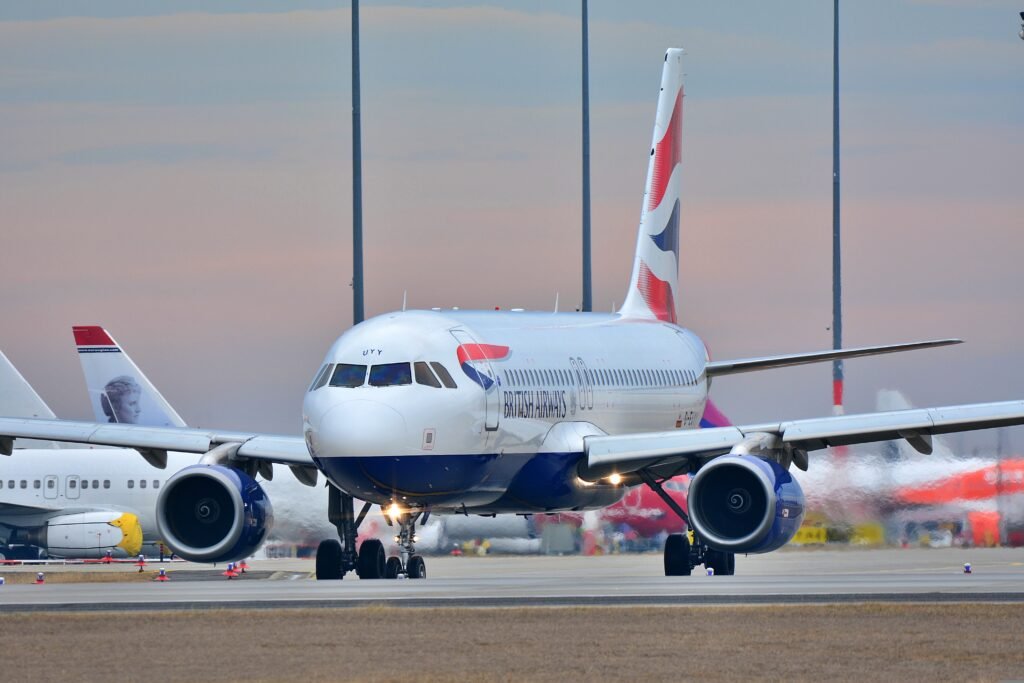
Navigating public transportation in Arabic-speaking countries can feel like stepping into a vibrant, sometimes chaotic, world of buses, metros, and taxis. But as I’ve learned over seven years of teaching at Ramdani Arabic Academy, a few well-practiced Arabic phrases can transform confusion into confidence. From greeting a driver with “السلام عليكم” (As-salaamu alaykum), pronounced “As-sa-laam oo-alay-koom” for “Peace be upon you,” to asking “أين الموقف؟” (Ayna al-mawqif?), pronounced “Ay-na al-maw-qif?” for “Where is the stop?” these tools open doors to smoother travels and richer connections. My students, from diaspora communities to curious travelers, have shared stories of how these phrases turned stressful rides into moments of cultural exchange—whether bargaining for a taxi in Amman or finding a lost bag in Casablanca. At Ramdani Arabic Academy, we don’t just teach words; we teach ways to build bridges, drawing on my Islamic Studies background that values community and empathy.
Learning Arabic for public transportation isn’t just about getting around—it’s about immersing yourself in the rhythm of a place. Whether you’re decoding a metro app in Dubai or asking a Marrakech driver about the next stop, these phrases make you feel less like a tourist and more like a welcomed guest. My pedagogy diplomas have taught me that practice is everything: write phrases in a notebook, record your pronunciation, or join our live sessions at Ramdani Arabic Academy to role-play real scenarios. The Arab world’s transportation systems, from sleek trains to bustling microbuses, are as diverse as its people, but with phrases like those we’ve covered, you’re ready for the journey. Mistakes are part of learning; locals often appreciate the effort, responding with warmth that reflects the hospitality I’ve seen across Morocco and beyond.
As you plan your next trip, let Ramdani Arabic Academy be your guide to mastering Arabic for travel. Our courses blend Modern Standard Arabic with dialect tips, ensuring you’re prepared for any situation—crowded stations, delayed buses, or friendly chats with passengers. Language is more than a tool; it’s a way to honor a culture and connect with its heart. Take these phrases, practice them, and step onto that bus or train with the confidence that you’re not just navigating a route but weaving yourself into the fabric of the Arab world.
If you are interested to learn arabic on our platform YOUTUBE here you can start
